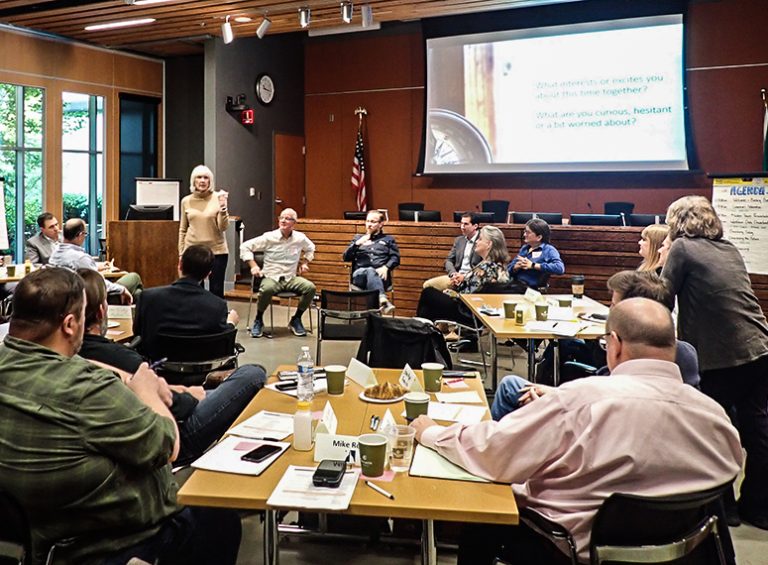Adding Value Through Connections and Partnerships
In addition to providing the essential public service of wastewater management, LOTT plays an active role in efforts to reach broader community goals such as improving local water quality, developing affordable housing and planning for sea level rise. Our Clean Water connections also include valued educational and recreational amenities, school district partnerships, participation in regional planning initiatives and peer-to-peer sharing within the clean water industry.

School District Partnerships
Science, Technology, Engineering and Math (STEM) Education in Action
LOTT is uniquely positioned to advance STEM education and has formal partnerships with the three school districts in its service area – North Thurston, Olympia and Tumwater – to include field trips to the WET Science Center in their science curriculums. One grade level from each district visits the WET Science Center each year. In this way, students enjoy field trips that support the Next Generation Science Standards and district-specific learning goals, while also learning about their local wastewater utility. This partnership helps LOTT to educate future ratepayers, school districts to meet their learning requirements and students to have a memorable, interactive learning experience.
Community Amenities
LOTT builds facilities that provide multiple community benefits, combining utility infrastructure with opportunities for education, recreation and public art.
Industry Ties
Strong Connections to the Clean Water Professional Community
Treatment performance at the Budd Inlet Treatment Plant is among the best in the country, making staff experience and knowledge highly sought after, especially with regard to nutrient removal processes. LOTT provides tours to visitors from throughout the state, region, country and even outside the U.S. to share this rare and valuable knowledge. LOTT is involved in many professional organizations, with staff serving in positions of leadership on committees focused on wastewater treatment, biosolids, pretreatment and more. Staff routinely share their technical expertise through professional conference presentations, panels and written papers in industry publications and serve in an advisory capacity for state-level planning initiatives, such as development of the Washington State Reclaimed Water Rule and the Puget Sound Nutrient General Permit.